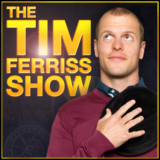.lightweight-accordion { border: 1px solid #ccc; border-radius: 4px; padding: 5px; margin: 5px 0; } .time { font-size: 0.875rem; /* Option 3: Using rem ...
.lightweight-accordion { border: 1px solid #ccc; border-radius: 4px; padding: 5px; margin: 5px 0; } .time { font-size: 0.875rem; /* Option 3: Using rem ...
.lightweight-accordion { border: 1px solid #ccc; border-radius: 4px; padding: 5px; margin: 5px 0; } .time { font-size: 0.875rem; /* Option 3: Using rem ...
.lightweight-accordion { border: 1px solid #ccc; border-radius: 4px; padding: 5px; margin: 5px 0; } .time { font-size: 0.875rem; /* Option 3: Using rem ...
.lightweight-accordion { border: 1px solid #ccc; border-radius: 4px; padding: 5px; margin: 5px 0; } .time { font-size: 0.875rem; /* Option 3: Using rem ...
.lightweight-accordion { border: 1px solid #ccc; border-radius: 4px; padding: 5px; margin: 5px 0; } .time { font-size: 0.875rem; /* Option 3: Using rem ...
.lightweight-accordion { border: 1px solid #ccc; border-radius: 4px; padding: 5px; margin: 5px 0; } .time { font-size: 0.875rem; /* Option 3: Using rem ...
.lightweight-accordion { border: 1px solid #ccc; border-radius: 4px; padding: 5px; margin: 5px 0; } .time { font-size: 0.875rem; /* Option 3: Using rem ...
.lightweight-accordion { border: 1px solid #ccc; border-radius: 4px; padding: 5px; margin: 5px 0; } .time { font-size: 0.875rem; /* Option 3: Using rem ...
.lightweight-accordion { border: 1px solid #ccc; border-radius: 4px; padding: 5px; margin: 5px 0; } .time { font-size: 0.875rem; /* Option 3: Using rem ...
.lightweight-accordion { border: 1px solid #ccc; border-radius: 4px; padding: 5px; margin: 5px 0; } .time { font-size: 0.875rem; /* Option 3: Using rem ...
.lightweight-accordion { border: 1px solid #ccc; border-radius: 4px; padding: 5px; margin: 5px 0; } .time { font-size: 0.875rem; /* Option 3: Using rem ...
.lightweight-accordion { border: 1px solid #ccc; border-radius: 4px; padding: 5px; margin: 5px 0; } .time { font-size: 0.875rem; /* Option 3: Using rem ...
.lightweight-accordion { border: 1px solid #ccc; border-radius: 4px; padding: 5px; margin: 5px 0; } .time { font-size: 0.875rem; /* Option 3: Using rem ...
.lightweight-accordion { border: 1px solid #ccc; border-radius: 4px; padding: 5px; margin: 5px 0; } .time { font-size: 0.875rem; /* Option 3: Using rem ...
.lightweight-accordion { border: 1px solid #ccc; border-radius: 4px; padding: 5px; margin: 5px 0; } .time { font-size: 0.875rem; /* Option 3: Using rem ...
.lightweight-accordion { border: 1px solid #ccc; border-radius: 4px; padding: 5px; margin: 5px 0; } .time { font-size: 0.875rem; /* Option 3: Using rem ...
.lightweight-accordion { border: 1px solid #ccc; border-radius: 4px; padding: 5px; margin: 5px 0; } .time { font-size: 0.875rem; /* Option 3: Using rem ...
.lightweight-accordion { border: 1px solid #ccc; border-radius: 4px; padding: 5px; margin: 5px 0; } .time { font-size: 0.875rem; /* Option 3: Using rem ...
.lightweight-accordion { border: 1px solid #ccc; border-radius: 4px; padding: 5px; margin: 5px 0; } .time { font-size: 0.875rem; /* Option 3: Using rem ...
- « Previous Page
- 1
- …
- 3
- 4
- 5
- 6
- 7
- …
- 24
- Next Page »

